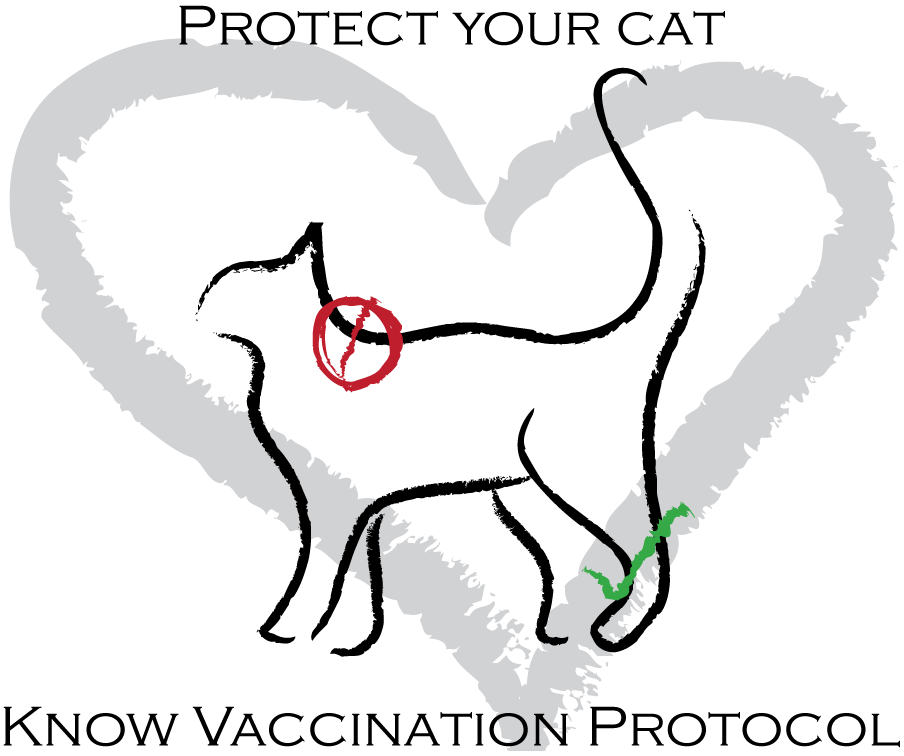Vaccinating your adult feline friend can be one of the most important steps that you should take to prevent disease in your cat. The cat vaccinations can protect her from many common ailments. You should begin vaccinating your cat when she is 6 to 8 weeks old because before this time, her mother’s antibodies have been protecting her from many diseases that vaccinations protect against. In this article, you will learn complete information about cat vaccination.
- What are vaccines?
Vaccines help prepare your cat’s immune system to fight the invasion of disease-causing microorganisms. These vaccines contain specific antigens, which appear similar to the disease-causing microorganism to the immune system but these do not actually cause disease. When these vaccines are introduced to your cat’s body, their immune system is mildly stimulated. In case your feline friend is ever exposed the real disease, her immune system will be prepared to recognize and fight this disease off entirely or reduce its severity.
- What are types of vaccines?
The cat vaccines are divided into two categories: core and non-core.
1.Core vaccines- These vaccines are considered important to all the cats and protect them against feline calici virus, panleukopenia (feline distemper), rabies and feline herpes virus type I (rhinotracheitis).
2.Non-core vaccines- These are given to your feline friend depending on her lifestyle. These include vaccines for Bordetella, feline leukemia virus, Chylamydophila felis and feline immunodeficiency virus.
Your vet can determine which vaccines are good and appropriate for your cat. Some common vaccines that are essential for your cat are as follows:
| Name of Vaccination | Description |
| Feline Viral Rhinotracheitis, Calicivirus and Panleukopenia (FVRCP) | Commonly called the “distemper” shot, this combination of vaccine effectively protects against three diseases: calicivirus, feline viral rhinotracheitis and panleukopenia (sometimes called “feline distemper”). |
| Rabies | The virus of rabies is fatal for all mammals, including humans. The vaccination of rabies is essential for all cats. |
| Chlamydia | Chlamydia is a type of bacterial infection which causes severe conjunctivitis. The vaccination for this infection is often included in the distemper combination vaccine. |
| Feline Leukemia (Felv) | It is a viral infection which is only transmitted through close contact. Generally, this vaccine is only recommended for the cats that go outdoors |
| Feline Immunodeficiency Virus (FIV) | This viral infection is only transmitted through close contact. Generally, this vaccine is recommended for the cats that go outdoors |
| Feline Infectious Peritonitis (FIP) | It is a viral infection which is common in catteries and feral colonies. FIP is almost always fatal. Most house cats don’t have significant risk of contracting this disease. |
| Bordetella | This bacterium causes highly contagious upper respiratory infections in the cats. Your vet can recommend this vaccine before your cat goes to a groomer or boarding kennel. |
- How important are vaccines to the health of my cat?
Vaccines are quite essential in managing the health of your feline companion. According to vets, not every cat needs to be vaccinated against every disease. For this matter, it is necessary to discuss with your vets a vaccination protocol which is right for your feline. Some factors that should be examined in your cat include medical history, age, environment and lifestyle. Most veterinary doctors highly recommend administering the core vaccines to the healthy cats.
- How often should my cat be vaccinated?
The vaccination schedule for your cat is determined by your vet. The schedule will depend on your cat’s age, type of vaccine, medical history of your cat, lifestyle and environment. Adult felines might be revaccinated annually or in every three years.
- What are the risks associated with vaccines?
Vaccination mildly stimulates your cat’s immune system to create protection from any specific infectious disease. This stimulation may create mild symptoms, which include soreness at the injection site, fever and allergic reactions.
Other less common side effect that is associated with the vaccination is injection site tumor. Vaccinations have saved countless lives and they play important role in the battle against the feline infectious disease. There is a very small chance of side effects with vaccination and in most of the cases risks are much smaller than the risks of disease itself. But, it is always good to talk to your vet about your cat’s medical history before she is vaccinated.
- What are the symptoms of side effect of vaccination?
Most cats do not show any side effect from the vaccination. The reactions of vaccine are usually minor and short-lived. Some clinical signs include:
- Sluggishness
- Fever
- Loss of appetite
- Vomiting
- Diarrhea
- Lameness
- Swelling and redness around the injection site


